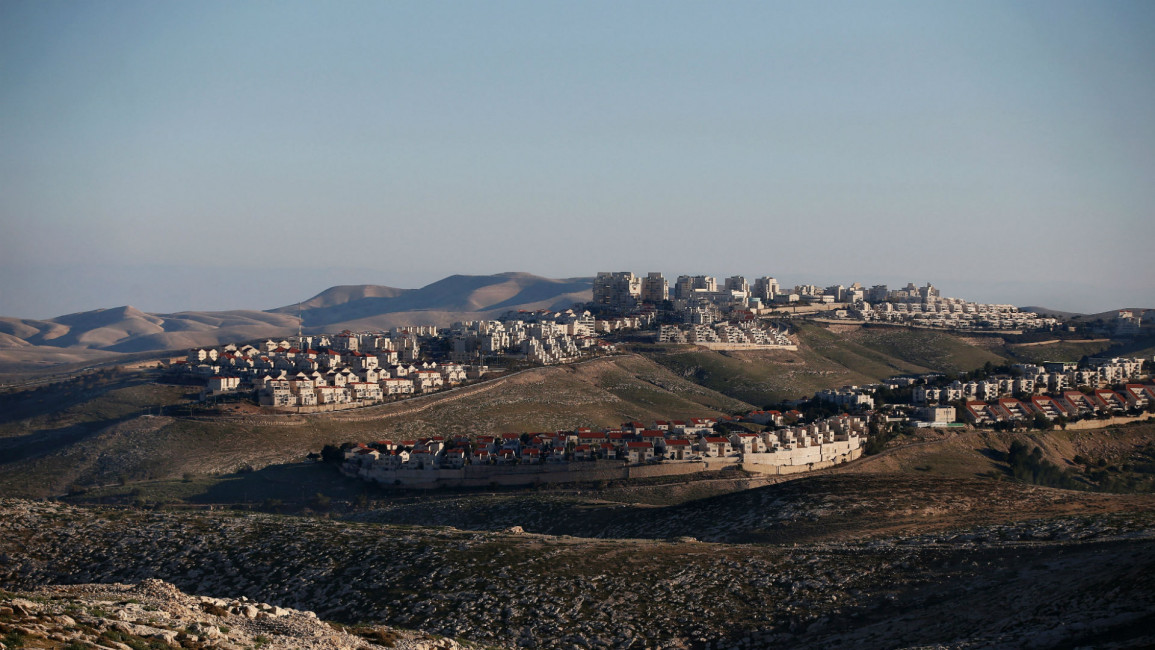
Why Jordan is troubled by the Abbas succession question

The question of who will succeed ailing Palestinian President Mahmoud Abbas, 87, who, in the last 18 years, has established himself as an authoritarian ruler of the Palestinian people, is nagging at his allies and foes alike.
But aside from the Palestinian people themselves, one party appears to be more concerned than others by the person who will eventually win a silent tussle for his position as Palestinian Authority (PA) president, chairman of the dysfunctional Palestine Liberation Organisation (PLO) - an umbrella for most Palestinian factions - and leader of the most significant Palestinian national liberation movement; Fatah.
That party is Jordan.
At stake are several issues and scenarios, all of them plausible and worrisome. A collapse of the PA will almost certainly whet the appetite of Israel’s far-right ministers and politicians who could unleash a brazen scheme to annex most of the occupied West Bank and strangle Palestinian cities and towns economically, forcing their inhabitants to leave, such as the ominous Kahanist plan of transfer.
The only destination for those Palestinians would be Jordan.
Another scenario predicts an internal power struggle, following Abbas’ sudden departure, between the potential heirs, including Hussein Al-Sheikh, the PA’s civil affairs minister and Abbas's confidant, who was appointed as secretary general of the Executive Committee of the PLO on 26 May 2022, and Majed Faraj, head of the General Intelligence Service (GIS), a member of Fatah's Revolutionary Council, and a close Abbas ally, who is also involved in security coordination with Israel and has strong contacts with the US and other countries.
Another scenario envisions a breakout of violence and chaos in the West Bank, allowing Hamas and Islamic Jihad to extend their influence, especially in refugee camps.
And even if things progress peacefully, the successor would have to prove his legitimacy by holding presidential and legislative elections in the West Bank and Gaza Strip; risking a landslide victory for Oslo Accords opponents, including Hamas, just as in 2006.
In all scenarios, Jordan stands to face national security challenges. King Abdullah, like his father, the late King Hussein, has supported the PA by promoting the two-state solution as the only path to peace in the Holy Land.
Aside from his role as custodian of the Muslim and Christian religious sites in East Jerusalem, King Abdullah does not want any responsibility for administering Palestinian civilian affairs in the West Bank. The decision by King Hussein to sever administrative and political ties to the West Bank in 1988 remains the bedrock of Jordan’s policy towards the Palestinian-Israeli conflict.
|
|
But he was never a charismatic leader and was seen by many as a bureaucrat who lacked the appeal of his predecessor.
Today, Abbas appears to have spent his ammunition on initiatives and gestures. Almost a decade of Benjamin Netanyahu’s Israel has left little if anything of the original Oslo Accords. His backers - Jordan, Egypt - and a hesitant US and EU, have failed to turn the tide of Israeli settlement expansion, which now controls over 40 percent of what remains of the West Bank.
"A collapse of the PA would open a Pandora's Box that delivers challenging scenarios for Jordan, including the publicised far-right Israeli premise of a 'Jordan Option' replacing a Palestinian state in the West Bank"
Adding to his woes is the recent faux pas regarding Jews in Europe and the Holocaust, blunders that have set off denunciations by Israel, Europeans, and pro-Zionist movements. He has resisted pressure to offer mea culpa, especially as he was to deliver what many considered to be his penultimate speech at the UN General Assembly.
A source close to the inner circle of Abbas, who requested anonymity, told The New Arab that it is likely that if Abbas fails to repent, his unofficial “impeachment” is expected to begin in days. They said he might even face a siege similar to that of Yasser Arafat’s in Ramallah.
That is bad news for Jordan. Aside from the two top contenders, Jordan is looking into possible alternatives. It is unclear if it coordinates with Egypt, Israel, and the Americans.
One possible name in the news is Marwan Barghouti, who is serving multiple life sentences in an Israeli prison. Barghouti remains a popular choice among many Palestinians, and there is speculation that he could assume a leadership role once released.
Recently, his name has resurfaced, as his wife, Fadwa, has been received twice by Jordan’s Foreign Minister, Ayman Safadi, and she is reported to have handed King Abdullah a letter from her husband in which he had commended Jordan’s support of the Palestinians and the King’s custodianship of Al-Aqsa Mosque.
She is reported to have travelled to Europe, Moscow, and several Arab capitals, including Doha, to present her husband’s case. Last March, she also met the Egyptian Foreign Minister in Cairo, Sameh Shukri.
|
|
Barghouti has been in touch with Abbas, reportedly backing his release. Israel has not commented on the matter. Neither did the US and the EU. But there are unverified reports that Hamas has no problem with Barghouti taking over.
For Jordan, the survival of the PA is a cornerstone of the Kingdom’s national security. A collapse of the PA would open a Pandora’s Box that delivers challenging scenarios for Jordan, including the publicised far-right Israeli premise of a 'Jordan Option' replacing a Palestinian state in the West Bank.
Osama Al Sharif is a journalist and political commentator based in Amman.
Follow him on Twitter: @plato010




